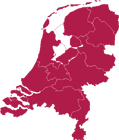
|

|






Although the second world war has left an imprint in memory of many in the Netherlands, it was the war that preceded this war that has dominated many new developments, or at least: so it is often said. Modern warfare techniques used during World War I have led to a number of advancements in the medical field for authorities had to find new ways to deal with the overwhelming numbers of wounded and the terrible wounds that were inflicted by modern weapons. New fields of medicine opened up, and nursing expanded as women rushed to help, never expecting the nearly unbearable conditions that they found on the battlefields of the Great War. Everything imaginable was tried to keep soldiers physically and mentally fit for service, be it at the front or at the weapons factory, showing that the concept of ‘sustainable deployment’ is in itself not a modern invention. Disabled soldiers were given technologically advanced prostheses, making them an early equivalent of the six million dollar man. Soldiers not anymore able to meet the hardships of war, were given electric cures in order to make them more afraid of the hospital than they were of the front. Slightly contradictory to this, the conviction was that the war itself had nothing to do with psychological weakness. It was hereditary or inborn. At most the war itself was the spark who set the characterological weakness too light. Medical practice was highly determined by its war circumstances.
Nevertheless, after the war the phrase that the war had been good for medicine became widespread and generally accepted. Because of the war many, soldiers and civilians alike, would be saved from long-time illness and early death.
This raises several questions: how did WW1 shape our conception of resilience; how did science contribute to military medicine, nursing, rehabilitation and psychiatry; which advancement of the Great War have been pivotal for medicine; what were the ‘real’ cures; how did the war have its effects outside its medical boundaries; what was the opinion of doctors (and patients) while the war raged? Finding answers to these historical questions could have its benefits for answering certain questions raised nowadays on the boundaries of soldiers’ health without (too much) endangering medicine’s integrity.
We will and cannot pretend to give all the answers to questions like these on this day. But we certainly think it could be a valuable contribution to the discussion.
Chairs: Dr. Leo van Bergen and Prof. dr. Col. Eric Vermetten
